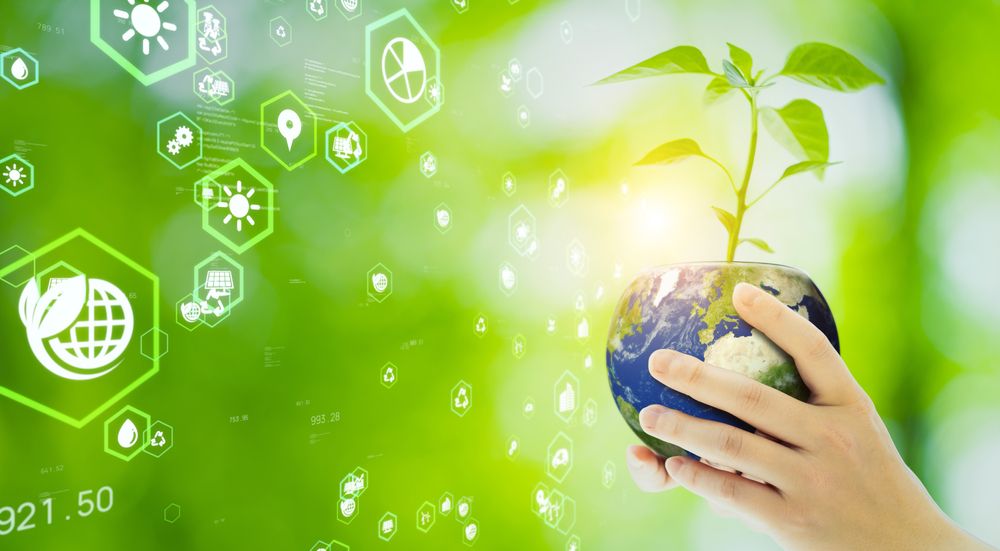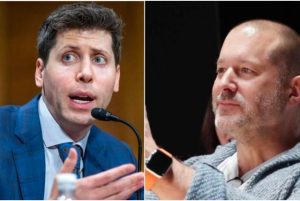Technology for a greener world – iAuto

Today, leading ICT companies are working hard to help the European green cycle. Martin Banks, a prominent journalist for Parliament magazine, reports that among them is the Chinese tech giant Huawei, which is doing its work to improve the global environment.
European Commission President Ursula von der Leyna said recently that it would not be possible to “build the world of tomorrow” without a strong EU-China partnership. Huawei’s main representative in the EU institutions is Abraham Liu, and he agrees that the partnership’s logo also indicates a gradual effort to ensure carbon neutrality.
Climate change has not stopped, despite the global economic downturn caused by Covid-19, and after a short pause, emissions are rising rapidly again.
This is one of the main messages that Leo wants to highlight during European Green Week 2021. It is the annual “Green Celebration” of the European Union, which will start on June 7 and last for a week.
Huawei has organized several events in its offices across Europe to raise awareness of global climate challenges. Liu believes Huawei has a good role to play in helping the EU achieve its much-acclaimed Green Deal goals. Liu describes it as “a bold guide and policy.”
He believes that in the next decade, the future of zero carbon will be secured by “five key technologies” – green energy, green connectivity, green digitalization, environmental protection provided by artificial intelligence, and carbon-neutral grids.
Speaking of “green energy,” Liu predicted that renewable energy would be dominated by solar and wind energy resources. It will be the fastest growing energy source, and Huawei strives to “build cleaner power generation systems that rely largely on conserving solar and wind energy resources.”
Green Communications – The company is at the forefront of developing all-optical technologies.
“Our optical fiber printing technology is capable of printing 1,000 optical fibers on the back plane, which is the size of an A4 sheet. This means that one set of equipment can do the same thing that the nine conventional methods will provide,” Liu said.
It also means 60 percent energy savings.
In the field of green digitization, the company is a leader in developing smart optimization technologies that can “teach” data centers how to save energy.
“This is what it means to use bits to manage watts,” admits Liu. In cooperation with the non-profit organization Rainforest Connection, Huawei has developed a serious audio monitoring system called “The Guardian of Nature”.
This system collects audio data, which is processed by artificial intelligence to prevent illegal logging.
Turning to zero-carbon grids, Liu estimates that energy consumption at global telecom sites will reach 66 billion kilowatt-hours by 2025, accounting for about 2% of total global energy consumption.
Conventional wireless power stations are 60% energy-saving. By replacing these technical rooms with external lockers, Huawei can increase them by up to 90%. “It’s a huge step forward,” says Liu.
Liu will talk about these and other elements of the “smart solution” in a virtual forum scheduled for June 8. It’s part of Huawei’s performance during Green Week. Liu will explain how he believes ICT technologies can help achieve carbon neutrality.
The panel discussion will also be attended by Charlie McConnalog, Ireland’s Minister of Agriculture, Food and Maritime Affairs, and Elias Lacovidis, European Commission Adviser on Green Digital Transformation.
“We call on all technology companies to actively support and participate in the fight against climate change, as it is essential to human destiny,” said Abraham Liu, Huawei’s chief spokesperson in the European Union.
Liu believes that new technologies will be able to reduce carbon emissions, and that ICT technologies will play an increasingly important role in this process.
“We call on all technology companies to actively support and participate in the fight against climate change, as it is essential to human destiny,” he explains. Liu believes that his and his other company will be able to unlock leverage so other players can fully unleash their emissions reduction potential.
The restrictions linked to the Covid-19 virus and the ensuing global economic downturn led to a temporary drop in carbon emissions, but the World Meteorological Organization recently reported that emissions are starting to rise sharply again.
“While the economy recovers, we need to ask ourselves how we can find ways to improve the global environment and move toward carbon neutrality,” Liu says.
Liu praised Europe as a leader in the fight against climate change, noting that in 2019, the fourth anniversary of the Paris Treaty, the European Union committed to achieving net zero carbon emissions by 2050.
Already in 2020, 38% of energy consumption in the European Union was based on wind, solar and other renewable resources, exceeding the level of fossil energy use for the first time.
“In addition, there are many companies in Europe that are setting a role model for sustainable development,” says Liu.
“Huawei supplies ICT infrastructure and smart devices, and we are convinced that ICT plays an increasingly important role in achieving a greener world,” he adds.
However, there is also the harsh reality that no one alone can solve the challenges of global climate: this question.
The focus of this year’s Green Week is on “zero pollution ambitions”, and the search for solutions to ensure a non-toxic environment across the European Union.
Looking ahead, Liu believes Huawei is “ready” to work with partners in Europe to move toward a carbon-neutral future.
It is strictly forbidden to use, copy or reproduce the material published on iAuto.lv on other Internet portals or media or to deal with the material published on iAuto.lv without the written permission of EON SIA.

Subtly charming zombie buff. Amateur analyst. Proud tvaholic. Beer fanatic. Web expert. Evil troublemaker. Passionate internet maven. Gamer. Food evangelist.






